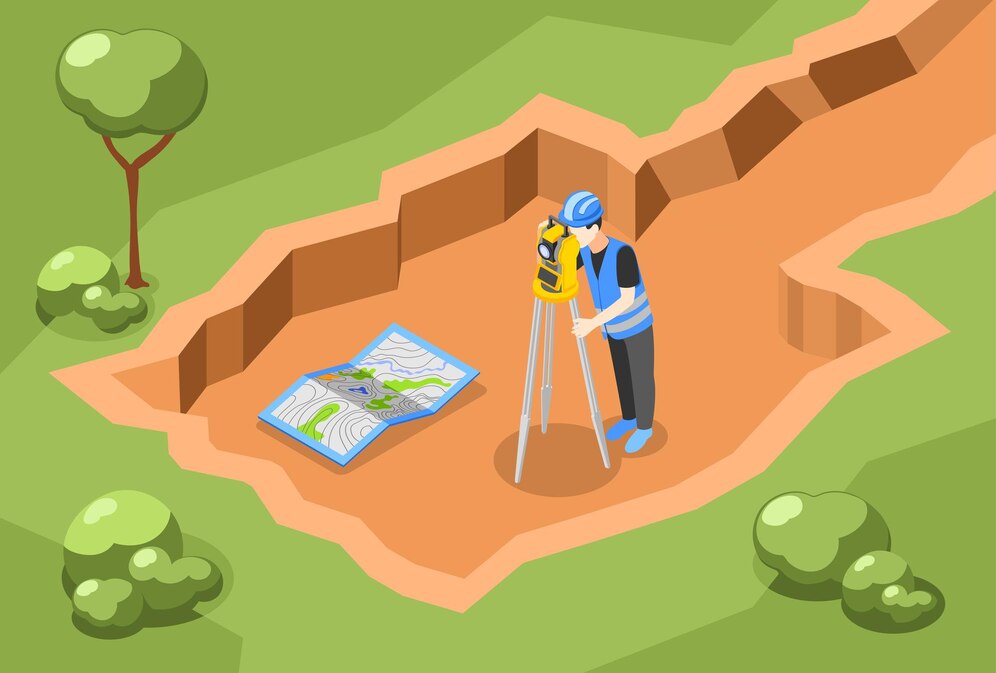
In the world of construction, a solid foundation is not just a metaphor—it’s a necessity. Whether you’re working on a towering skyscraper, a residential complex, or a sprawling bridge, the stability of your project starts beneath the surface. This is where a Geo-Technical Report becomes a vital component. These detailed documents offer essential insights into the soil, rock, and subsurface conditions of a site, ensuring stability, safety, and durability for any structure.
What is a Geo-Technical Report?
A Geo-Technical Report is a detailed document prepared by geotechnical engineers following an in-depth investigation of a construction site’s subsurface conditions. It provides data gathered through soil sampling, laboratory testing, and analysis. This information is critical for assessing whether the site is suitable for the intended project. The report typically covers soil composition, moisture content, shear strength, and other parameters influencing the design and construction process.
Why Geo-Technical Reports Matter
Foundation Design and Safety
The foundation is the backbone of any structure. A well-prepared Geo-Technical Report provides essential data needed to design foundations capable of handling the unique conditions of a specific site. This includes determining the soil’s bearing capacity and predicting potential settlement. Without these insights, there’s a risk of designing a foundation that could fail under pressure, leading to costly repairs or even structural collapse.
Risk Mitigation
Unforeseen subsurface conditions are among the most significant risks in construction projects. A comprehensive Geo-Technical Report can identify potential hazards such as soil liquefaction, landslides, or unstable slopes. By addressing these risks in the design phase, project teams can implement proactive measures, minimizing the chances of costly delays, safety issues, or catastrophic failures.
Cost Efficiency
Accurate geotechnical data can lead to substantial cost savings. When engineers understand the soil and rock conditions at a site, they can design foundations and support structures that are both efficient and cost-effective. This eliminates unnecessary over-engineering and reduces the likelihood of expensive changes during construction. Moreover, by avoiding surprises such as unexpected soil instability, projects can stay on schedule and within budget.
Environmental Considerations
Geo-Technical Reports also play a significant role in identifying and managing environmental concerns. They provide data on groundwater conditions, contamination risks, and other environmental factors that need to be addressed. This ensures compliance with environmental regulations and helps protect ecosystems surrounding the construction site.
Regulatory Compliance
In many regions, a Geo-Technical Report is a mandatory requirement for obtaining construction permits. These reports confirm that the proposed structure adheres to local building codes and regulations, particularly those concerning foundation design, slope stability, and seismic considerations. Compliance ensures the project is both legally and structurally sound.
Key Components of a Geo-Technical Report
Site Description
The report begins with an overview of the site, detailing its location, topography, and any existing structures nearby.
Subsurface Investigation
This section provides findings from exploratory methods like soil borings, test pits, and geophysical surveys to understand the subsurface profile.
Laboratory Testing Results
Data from laboratory analysis of soil and rock samples are presented, including properties like moisture content, grain size, density, and shear strength.
Geotechnical Analysis
Using the collected data, engineers evaluate the site’s suitability for construction. This includes determining the soil’s bearing capacity and predicting settlement behavior.
Recommendations
The report concludes with practical recommendations for foundation design, site preparation, and any necessary remediation measures to address potential risks or challenges.
Conclusion
Geo-Technical Reports are the cornerstone of successful construction planning. They provide critical insights into the ground beneath a project, enabling informed decisions and mitigating risks. From designing safe and stable foundations to ensuring regulatory compliance and environmental protection, these reports are indispensable for any construction project.
By investing in thorough geotechnical investigations, project stakeholders can lay the groundwork—literally and figuratively—for long-lasting, reliable structures. For developers, contractors, and engineers, a well-prepared Geo-Technical Report is an essential tool for building with confidence on solid ground.